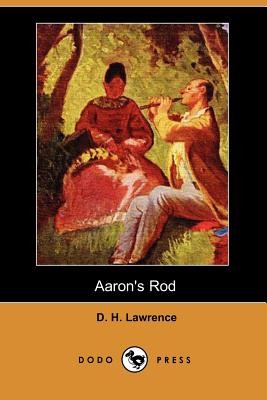
- We will send in 10–14 business days.
- Author: D H Lawrence
- Publisher: Dodo Press
- ISBN-10: 1406535974
- ISBN-13: 9781406535976
- Format: 15.2 x 22.9 x 2 cm, minkšti viršeliai
- Language: English
- SAVE -10% with code: EXTRA
Reviews
Description
Aaron's Rod is a novel by D. H. Lawrence, started in 1917 and published in 1922. The protagonist of this picaresque novel, Aaron Sissons, is a union official in the coalmines of the English Midlands, trapped in a stale marriage. David Herbert Richards Lawrence (1885-1930) was a very important and controversial English writer of the 20th century, whose prolific and diverse output included novels, short stories, poems, plays, essays, travel books, paintings, translations, literary criticism and personal letters. His collected works represent an extended reflection upon the dehumanizing effects of modernity and industrialisation. In them, Lawrence confronts issues relating to emotional health and vitality, spontaneity, sexuality, and instinctive behaviour. Lawrence's unsettling opinions earned him many enemies and he endured hardships, official persecution, censorship and misrepresentation of his creative work throughout the second half of his life, much of which he spent in a voluntary exile he called his "savage pilgrimage." He is now generally valued as a visionary thinker and a significant representative of modernism in English literature.
EXTRA 10 % discount with code: EXTRA
The promotion ends in 22d.04:38:24
The discount code is valid when purchasing from 10 €. Discounts do not stack.
- Author: D H Lawrence
- Publisher: Dodo Press
- ISBN-10: 1406535974
- ISBN-13: 9781406535976
- Format: 15.2 x 22.9 x 2 cm, minkšti viršeliai
- Language: English English
Aaron's Rod is a novel by D. H. Lawrence, started in 1917 and published in 1922. The protagonist of this picaresque novel, Aaron Sissons, is a union official in the coalmines of the English Midlands, trapped in a stale marriage. David Herbert Richards Lawrence (1885-1930) was a very important and controversial English writer of the 20th century, whose prolific and diverse output included novels, short stories, poems, plays, essays, travel books, paintings, translations, literary criticism and personal letters. His collected works represent an extended reflection upon the dehumanizing effects of modernity and industrialisation. In them, Lawrence confronts issues relating to emotional health and vitality, spontaneity, sexuality, and instinctive behaviour. Lawrence's unsettling opinions earned him many enemies and he endured hardships, official persecution, censorship and misrepresentation of his creative work throughout the second half of his life, much of which he spent in a voluntary exile he called his "savage pilgrimage." He is now generally valued as a visionary thinker and a significant representative of modernism in English literature.


Reviews